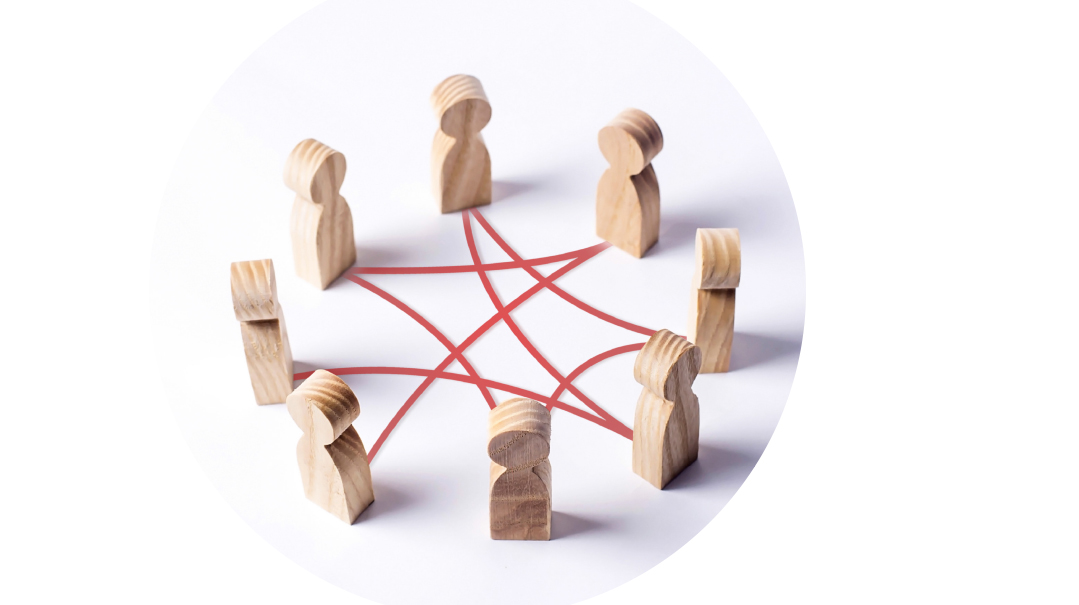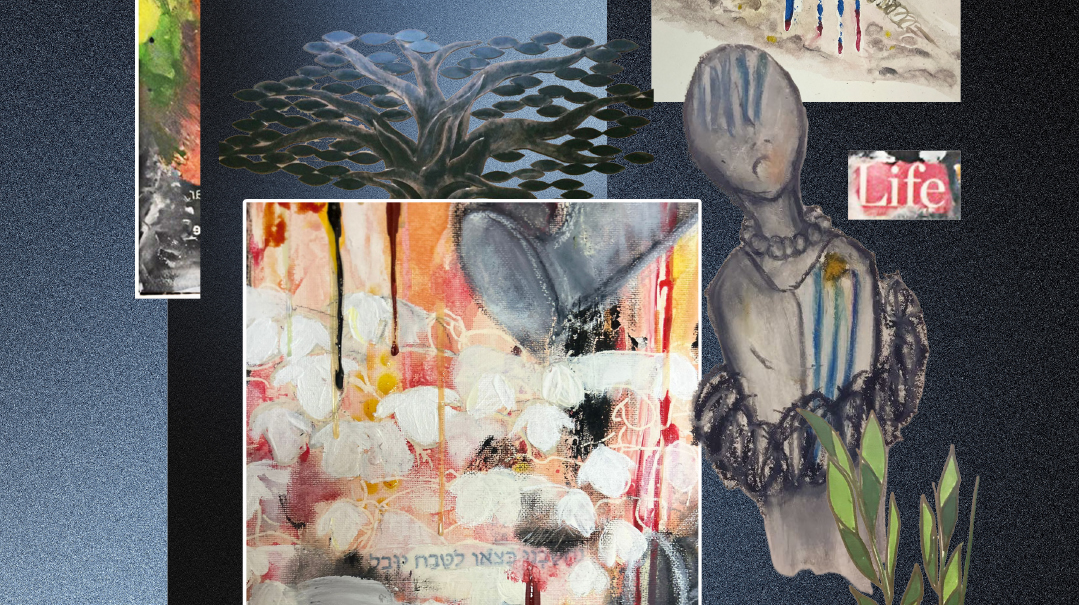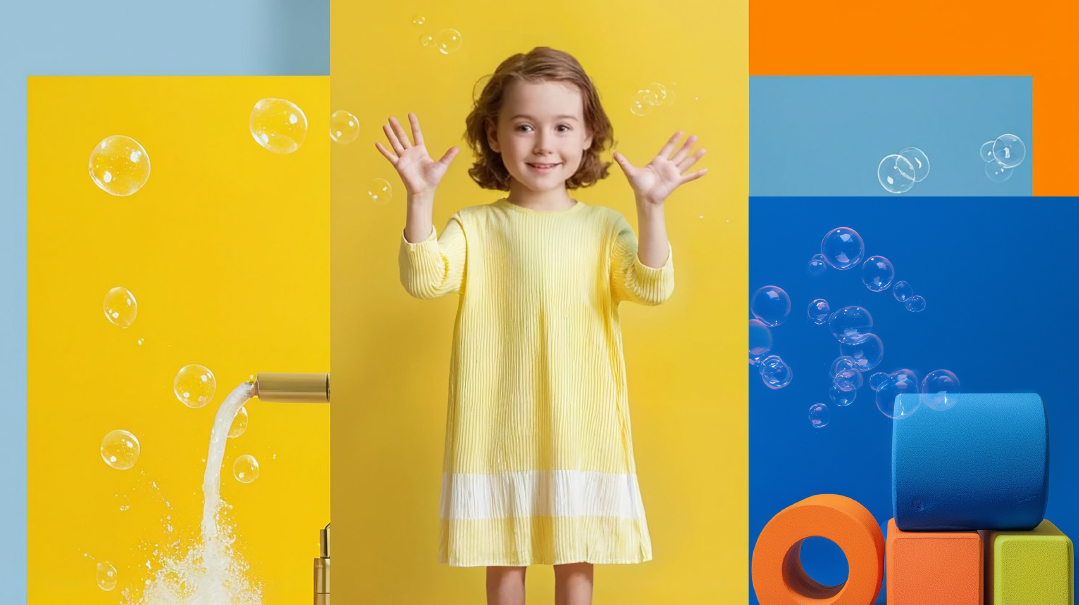On Your Mark with Jessica Tsur

Jessica Tsur is an ambassador of connection to support women suffering from anxiety and depression

From a young age, I knew I wanted a religious life. Though not frum, my family had a strong, proud Jewish identity, so I knew a bit about Torah. I was born with anxiety, back before it was a thing, before doctors were well-versed enough in its symptoms to spot its diverse manifestations. But I sensed that Torah gave life purpose and meaning, making sense of the seemingly random, anxiety-inducing events that so overwhelmed me.
Change overwhelmed me. In anticipation of a family trip to Disney World, I developed such bad physical pain that the doctor thought I had appendicitis. At age seven, I was being pushed around Disney Word in a stroller. In hindsight, it’s clear that any upheaval in environment — even one as awesome as a trip to Disney — caused severe anxiety to the point of physical pain.
There was no Orthodox life in Manchester, New Hampshire, but I did love the NCSY shabbatons in the nearby towns. After high school, my religious journey took a hiatus during my first years of college, but then I spent a semester in Hebrew University. In the holy city, I felt pain every time I didn’t keep Shabbos.
A series of impossible twists of fate, including a statistically improbable Jerusalem snowfall that was an obvious sign from Heaven, led me to meet the wonderful group of frum girls with whom I’d ultimately move to Manhattan.
I still had one year of college to wrap up in New Hampshire, and it was hellish. I began suffering severe lightheadedness and would be so dizzy that I’d grip the sides of my desk during class to keep from collapsing. I couldn’t work out or get together with friends — I never felt well. I visited conventional doctors, underwent tests, saw homeopaths, but no one could pinpoint any physical cause. In this debilitated state, I moved to NYC with the group of friends I’d made in Israel.
Ups and Downs
My timing couldn’t have been worse. I moved to the city the year of 9/11, and my grandmother passed away as well. My physical symptoms spiraled out of control.
One of my closest friends gently suggested that it was time to see a psychologist, but I looked at her like she was out of her mind. I humored her, though, and after only two visits the psychologist said I needed a psychiatrist.
The psychiatrist prescribed me anti-anxiety meds that literally saved my life. My physical symptoms vanished, I could function, hit the gym, start shidduchim. I had a normal life again!
The revelation that my physical ills had emotional roots was life-changing, and I began an upward, positive journey that lasted 15 years. I married, moved to Far Rockaway, and started a family.
A few years ago, challenging life events threw a monkey wrench into my peaceful existence, and I began having frequent panic attacks. I stopped doing anything but the bare minimum. Therapy wasn’t helping, and I spiraled into severe depression.
I lost weight, and people told me how good I looked. Even my closest friends had no idea. Depression is an invisible illness. My kids were in school, wearing clean clothes, there were no outside signs.
The hardest part was the isolation. I was so scared that people would find out about my demons. Would they still send their kids to my daycare? Would parents let their kids play with mine? My husband was always there for me, but if you haven’t experienced anxiety and depression, it’s not easy to understand.
My second hospitalization was on my 40th birthday. After 15 hours in the hospital, I reached deep into myself to try to practice the skills I’d learned to help myself. I knew exercise always helped my mental state, so I began to walk up and down the floor. Just walking.
As I walked, I noticed the other people in the ward. I spotted a woman I guessed was frum, since she was holding a siddur. I sat down beside her and introduced myself. We were both in so much pain; I was reaching out for myself as much as for her.
“Do you want to walk with me?” I asked. She resisted at first, but I encouraged her. “Just until the next door.” Finally, she joined me. We walked to the door. Then a little further, and a little further. Soon other women joined us, until we had our own walking club there in the hospital.
An African American nurse on the floor approached me. “Bubbale,” she said. “I don’t know what you’re doing, but keep on doing it!”
What was I doing? I was creating connection, I realized.
Team of Courage and Hope
That night in the hospital, CATCH was born. The acronym stands for “Creating a Team of Courage and Hope,” because that’s what it’s all about — creating a team so no one has to experience mental illness alone. At three a.m. there in the hospital, I started making a list. What do I need? What support do I want, and what can’t I find?
When there’s physical illness, there are so many organizations who can step in to help out. The community sends meals, funding, chesed girls, cleaning help. But when someone has mental illness, there’s no support, and it’s so hard to advocate for yourself. When you can’t get out of bed, you certainly can’t call around to try to find help.
I wanted CATCH to become the Chai Lifeline of mental illness, that one-stop place where all of a patient’s needs could be met. We began with seed money from MASK, JCCRP, and Bikur Cholim of Far Rockaway. We started support groups in the Five Towns and Boro Park, first in a clinician’s backyard, and then, as the weather got colder, via Zoom.
The feedback that poured in was overwhelming. Participants called the groups lifesaving; it was the first time they’d ever opened up about their struggles and found other people who could relate. Age didn’t matter, affiliation didn’t count. We had women with covered sheitels and others in jeans, and they all felt accepted and supported by other Jewish women who shared their struggles.
Recently, we held our first in-person event, where I shared my story, and clinicians shared their perspectives and answered questions. Participants walked away empowered and uplifted, knowing they were not alone.
Unfortunately, our money didn’t stretch too far. For the struggling participants, even the nominal costs of participation were steep, and we couldn’t continue all of the groups. Raising funds for therapy can be an uphill battle, because some people view it as a bottomless pit, with no endgame in sight. Really, that view is short-sighted. Anxiety and depression are very manageable. With support groups and proper intervention, sufferers don’t ever have to reach a point of crisis, so an ounce of prevention is truly worth a pound of cure.
Long term, I hope our small groups can grow to help everyone who struggles with anxiety and depression. I dream of building a stand-alone CATCH center, a hub of prevention and wellness, where women can come for support and empowerment.
Anxiety and depression will be my lifelong companions, but the message I want to share with all my sisters is that they don’t have to be debilitating. So many of your friends and neighbors share your struggles, and together we can support each other to lead wholesome, fulfilling lives.
A song that inspires me
I can listen to Yoni Z’s “Power” for 45 minutes on repeat (and I do, sometimes, when I run). “No one else can set you free/You’re locked inside/And only you have got the key…”
How I unwind
I love running and biking and anything that gives me an adrenaline rush. I love the Long Island Adventure Park, where I can deliberately overcome my fears. My kids won’t come, though — they’re scaredy cats.
Secret strength
In DBT (dialectical behavior therapy), you learn that volunteering is a real skill. Chesed is something I can use to keep myself above water even when I feel I’m at rock bottom. If I find myself slipping into depression and anxiety, I’ll host an event for the clothing gemach I run.
(Originally featured in Family First, Issue 749)
Oops! We could not locate your form.







